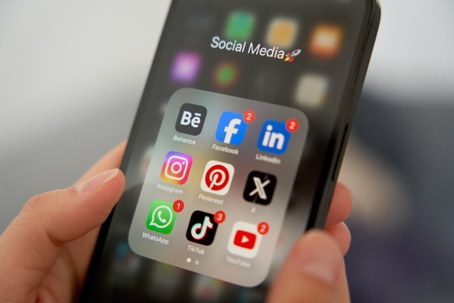Social media is part of most people’s daily lives—it’s where we share memories, stay connected, and tell our stories. But if you’ve been injured in an accident and are pursuing a personal injury claim, that innocent post about your day could come back to haunt you. Insurance companies may seem supportive on the surface but aren’t always on your side. They’re in the business of paying out as little as possible, and they’ve learned how to use social media as a tool against personal injury victims.
How Insurance Companies Use Your Social Media Against You
When you file a personal injury claim, insurance companies start to investigate the accident and you. They aren’t just looking at medical records and police reports—they’re also looking online. Here’s how your social media activity can cause problems:
1. Taking Posts Out of Context
Insurance companies know how to twist things to their advantage. For example, imagine you post a smiling photo from a family gathering after your injury. While that post may reflect a brief moment of comfort amidst your pain, the insurance company might argue, “This person doesn’t appear injured or in pain.” They can use that photo to question the severity of your injuries, even if it has no bearing on your actual condition.
2. Monitoring Activity for Contradictions
Have you posted about playing with your children in the backyard or walking your dog around the park? Innocent as that sounds, the insurance company could argue that these actions prove you’re not as physically limited as you claim. They may even scrutinize the timestamps of your posts to match them against your reported medical timeline, looking for inconsistencies.
3. Digging Through Old Content
Insurance adjusters don’t stop at recent posts. They’ll scroll through your history to find anything they think suggests you’re untrustworthy. An old post about a minor back strain from years ago could suddenly be framed as evidence that your new injury isn’t related to the accident. Even unrelated posts can be misconstrued if they fit the narrative they’re trying to create.
4. Analyzing Your Network’s Activity
You’re careful about what you share, but what about your friends and family? If someone tags you in a photo or talks about your accident online, that information can also be fair game. Insurance companies may use these connections to gather more details, even if it feels invasive.
How to Protect Yourself on Social Media
Now that you know the risks, here’s how you can safeguard your case:
1. Tighten Your Privacy Settings
Make your social media accounts private and limit who can see your posts. While this won’t fully prevent someone from accessing your information, it can create an extra layer of protection. Review your settings on platforms like Facebook, Instagram, and Twitter, ensuring only trusted friends can view your content.
2. Avoid Posting About Your Case
Do not post anything about your accident, injuries, or legal proceedings. Even innocuous comments like “I’m feeling better today” can be taken out of context. It’s best to stay silent about the case entirely until it’s resolved.
3. Be Mindful of Photos and Videos
Skip sharing pictures or videos that could leave room for interpretation. For instance, if a well-meaning friend snaps a photo of you at a social event, it could create the illusion that you’re fully recovered, even if you’re not.
4. Caution Loved Ones
Inform your family and friends not to tag you, mention your injury, or discuss your accident online. A single post from someone else could give insurance companies exactly what they’re looking for.
5. Resist the Urge to Vent
Everyone needs an outlet, but social media isn’t the place to air your frustrations about your accident or the claims process. Those posts can be seen as a sign of bitterness or exaggeration and might hurt your case. Instead, talk to trusted friends, family, or your attorney for support.
6. Consult Your Attorney
One of the best ways to protect yourself is by hiring a personal injury attorney. They can guide you on what is safe to share and help you handle tactics used by insurance companies. An experienced attorney will be your advocate, countering any arguments built from your social media activity.
Why Hiring a Personal Injury Attorney Is Crucial
When you’re dealing with an accident and injuries, the last thing you need is for someone to undermine your pain and suffering. Unfortunately, insurance companies often look for ways to minimize your claim, and social media is just one of their strategies.
A skilled personal injury attorney understands these tactics. They’ve seen how insurance companies operate and know how to fight back on your behalf. With an experienced attorney by your side, you won’t have to face this battle alone. They’ll help you avoid common pitfalls, build a strong case, and hold the responsible parties accountable.
Harrisonburg Personal Injury Attorneys
In conclusion, the intersection of social media and personal injury claims presents both challenges and opportunities for claimants and legal professionals. By understanding the strategies employed by insurance companies and the legal implications of social media use, individuals can better protect themselves and their claims. If you find yourself navigating a personal injury claim in Harrisonburg, VA, consider reaching out to the Obenshain Law Group for expert legal guidance. Our experienced attorneys are dedicated to helping you achieve the best possible outcome while safeguarding your rights and interests. Contact us today at (540) 318-7360 to learn more about how we can assist you in your personal injury case.

